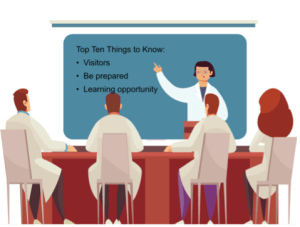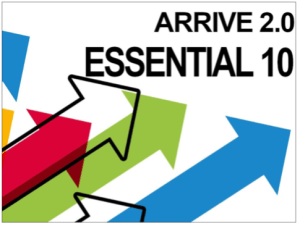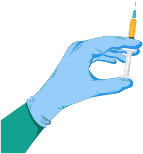 |
“Get Ready for AAALAC 2023!” Virtual Town Hall EventsOffice of Animal Welfare (OAW) is hosting three virtual Town Hall events in June. Come learn about what to expect during the AAALAC site visit, tips for preparing, and answers to any questions that you have about the visit. We recommend all researchers and staff that work with animals attend one of these events. No registration is necessary to attend the events below that will be held on Zoom. June 1, 12:00pm-1:00pm. |
 |
The ARRIVE 2.0 Essential 10: Guidance for NIH-sponsored ResearchThe “Essential 10” are statistically based guidelines for ensuring rigor and reproducibility in your study, and NIH encourages use of these guidelines in all sponsored research. Learn more about these essential tools and register for the upcoming webinar hosted by NIH/OLAW on June 15th at 10am PT. |
 |
Syringes and NeedlesA new online course contains two videos with the UW Attending Veterinarian explaining the basics on sharps handling and safety. Learn about needle nomenclature, proper handling techniques, and bubble clearing. This is not a replacement for the required hands-on lab class, but provides the basics. This is a refresher course if you have previously attended the hands-on lab class. Take the lesson Needle Handling and Syringe Safety. |
 |
Check your Protocols!How long has it been since you looked at your approved protocol? Things change and memory erodes; especially in these crazy Covid times. Before you inject that substance into your research animal, or perform that technique, double-check that it is in the most recent version of your approved protocol in HoverBoard. Here is a lesson for How to Check Your Approved Protocol. Don’t be that one that deviates from the protocol. If help is needed, please reach out oawrrs@uw.edu or your Liaison. |
 |
Big NewsAUTS is unveiling our new name – The Center for Laboratory Animal Training Resources (CLATR). We are still utilizing the auts@uw.edu email, but if you see communications listing CLATR, know that it’s still us, your training resource. We hope this will increase our visibility as a leader in training resources for researchers throughout their work cycle. |